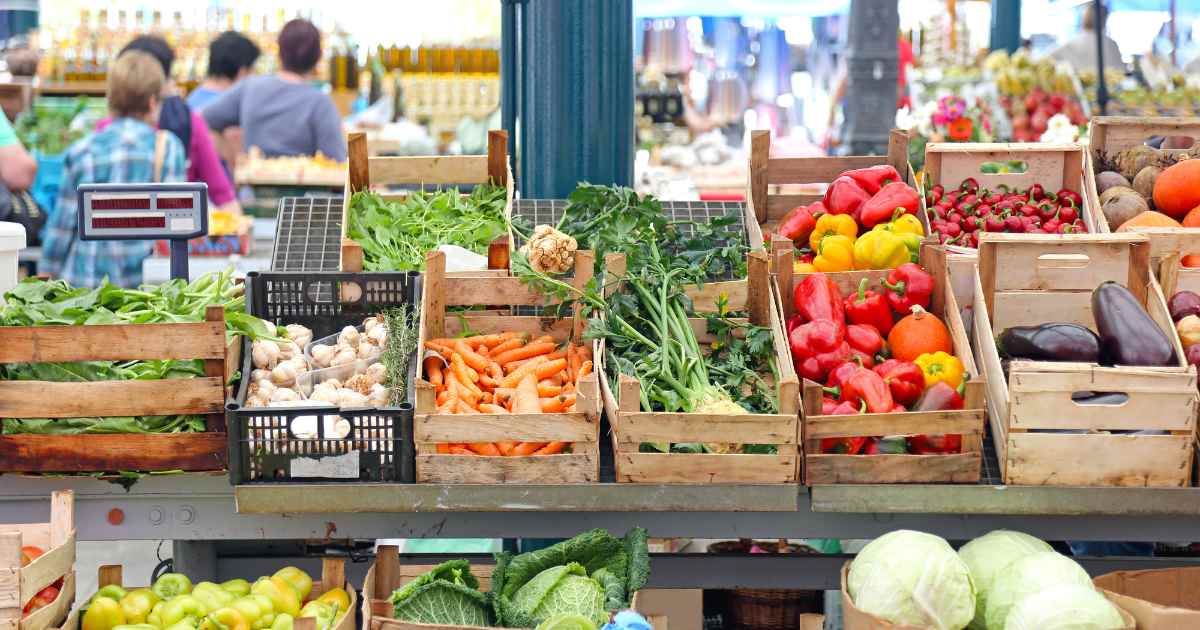Johannesburg, often called Joburg, is a vibrant city in South Africa known for its diverse economy and lively culture. Potential suppliers that are interested in catering to this market need to have an understanding of the traits of the market as well as the demand. In this article, we explore a step-by-step guide for any agro-producer trying to make the most of this opportunity.
What is the Joburg Market
The Johannesburg Market is often called the JM, or affectionately referred to as the Joburg Market. This is a vital distribution point in the agricultural value chain where farmers from across the country send their products.
The market is situated in City Deep and conveniently situated 5 km outside of Johannesburg South’s central business district. It’s easily accessible by all the major freeways in the area.
Currently, it’s the biggest market for fresh produce not only in South Africa but on the entire African continent – both in volume and value. It is twice the size of the second-biggest market in the country, standing out head and shoulders between the 17 local fresh markets. The entire facility measures up to 65 000 m².
Within the 55 cold rooms at the JM, 4 561 pallets can be stored. Additionally, there are also 50 banana ripening rooms where 1 590 pallets can be stored.
Joburg Market Consumers and Suppliers
Approximately 5 000 South African farmers from across the country send their produce to the Joburg market. From here, retailers, shopkeepers, street traders, restaurateurs, housewives and exporters alike come to buy the widest variety of fruits and vegetables. The daily amount of visitors (buyers) averages 10 000 individuals.
There are three food hubs into which the produce is divided. These are the Fruit Hub, Potato and Onion Hub, and Vegetable Hub.
How to Become a Supplier
Joburg Market chargers the producer (farmer or agro-producer) 5% commission for all the sales that are made on the floor. Another 7,5% on top of that is added as a levy for the Market Agents who are working hard to sell the produce on the farmer’s behalf.
To become a supplier for the Joburg Market, you can follow these steps as outlined on its website:
1. Identify a market agent and obtain contact details of a salesperson who specialises in selling your product. You can find a market agent in the Market Agent Directory.
2. Find out what the product requirements are from the market agent.
3. Visit the Joburg Market, particularly the trading halls, meet the salesperson and familiarise yourself with the Joburg Market’s operations and procedures.
4. Exchange contact details with the Salesperson, including your name, trading name of the farm, ID number, contact details and banking details.
5. Obtain a threefold delivery note book with serial numbers.
6. Make an appointment at consignment control or e-mail a registration request to the designated officer. You can also see the supervisors/managers to obtain additional information.
7. Complete and return the Producer Information form provided by an officer or via e-mail or in person, with details on which agent to contact. The consignment control person will then register an agreement with this specific agent or agents as multiple agents can be used at any given time.
8. The Producer Code Number is then linked to the Sales Processing System (SPS) and provided by the consignment control officer for reference on all consignments entering the market.
9. Finally, ensure that this code is provided on all delivery notes declared to ensure traceability and reconciliation documents.
Whenever a delivery note ir written, ensure that the following information is always clearly showing:
- Product Details
- Farmer’s details
- Market Agent’s details
- Salesperson consigned to
- Physical/Postal address of the farmer
- Quality of produce (class, packaging, size, weight)
- Quantity of produce
Important SupplierRequirements
Any farmer or packhouse supplying produce to the Johannesburg Market for human consumption needs to ensure that it is safe. This means produce should be free of mould, pesticide residue or other contaminants.
The website states that in terms of the APS Act and market By-laws, Joburg Market reserves the right to refuse the offloading of inferior quality produce deemed to be unsaleable (unfit for human consumption).
Now that you understand the easy steps to supplying the Joburg Market you can bring your agricultural goods to be sold to a larger audience. Ensure your produce is safe for human consumption, and your relationship with the JM is sure to be fruitful!





















Discussion about this post